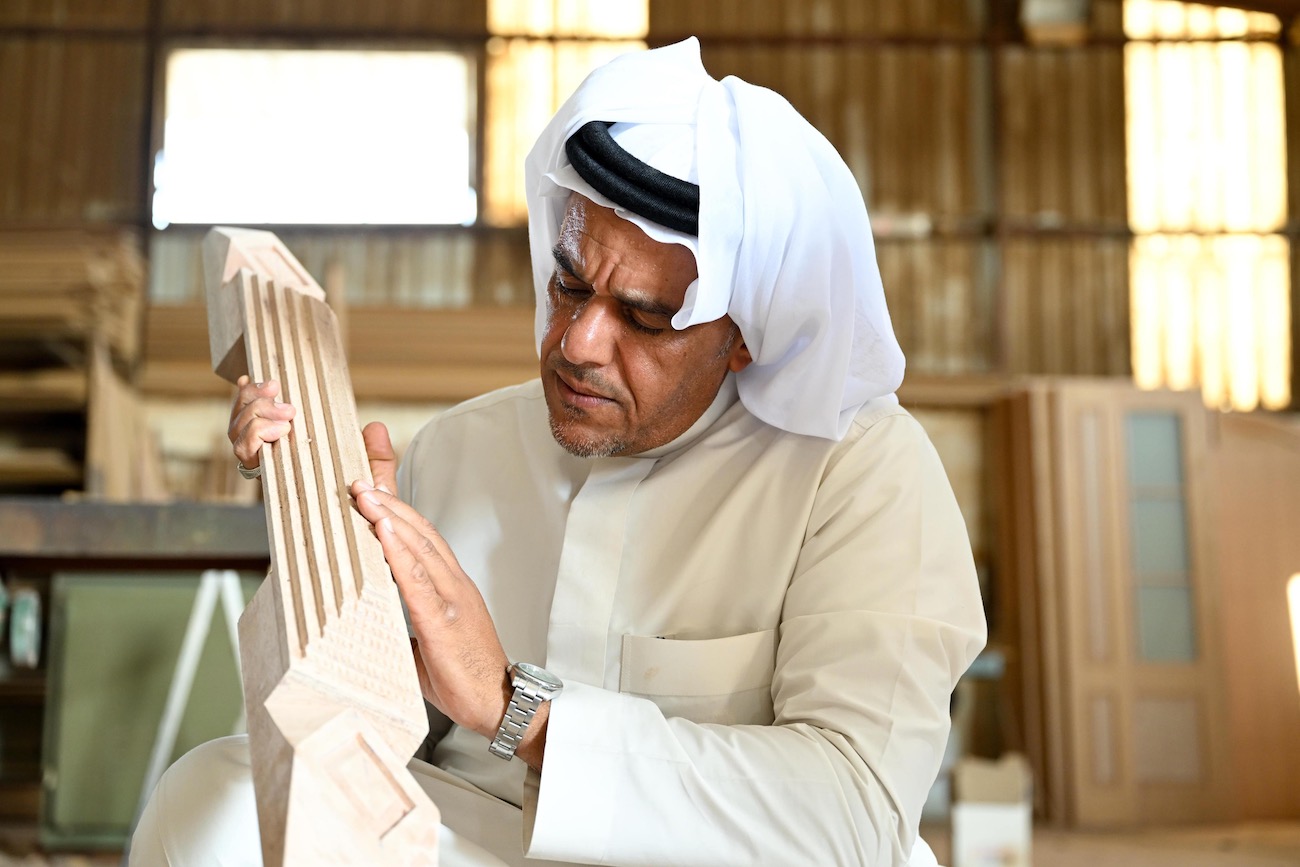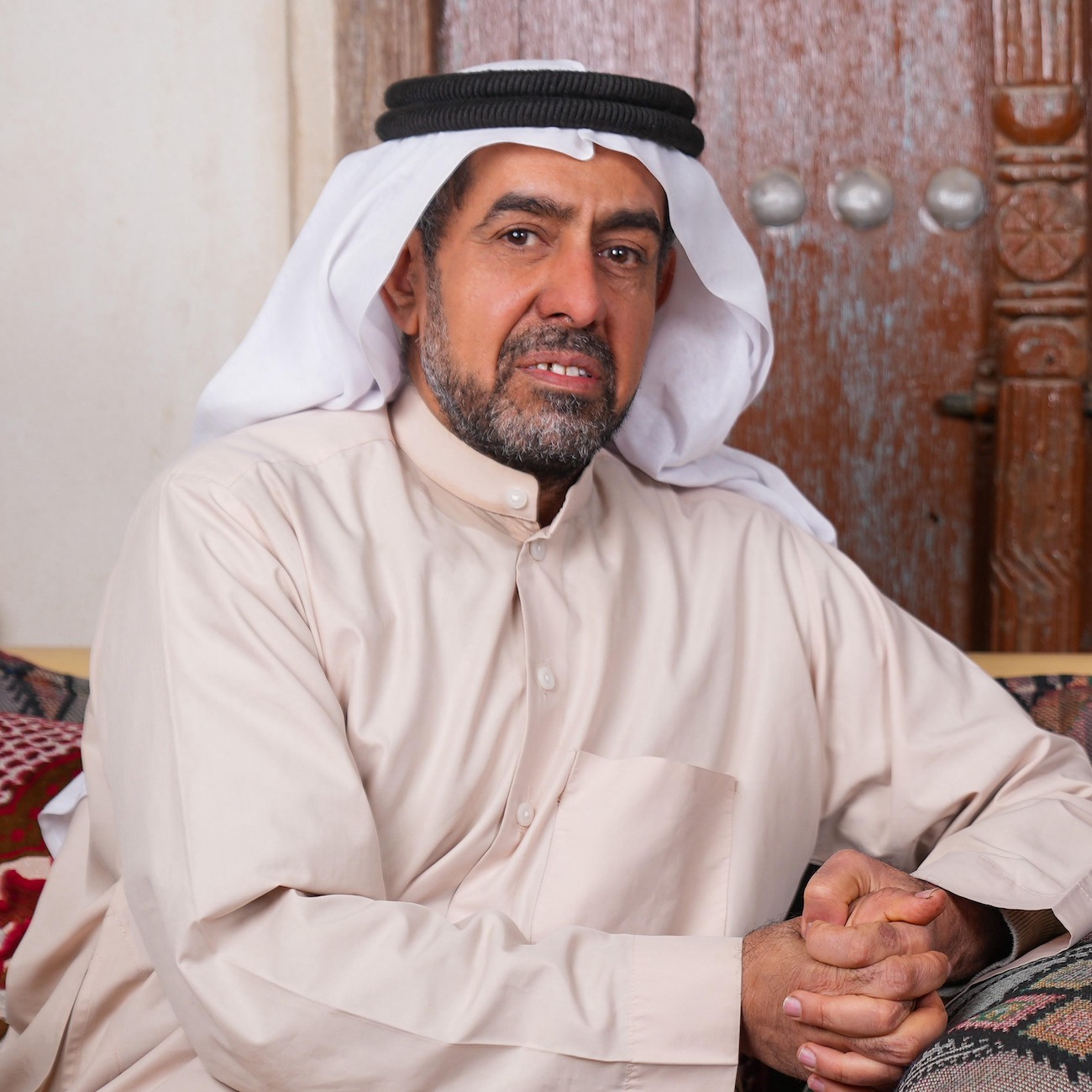DAMMAM: The team behind a public exhibition showcasing the artistry of eastern Arabia’s carved wooden doors has spoken of their cultural significance.
Abwab Al-Sharqiya (The Doors of the Eastern Province), was installed in late 2024 along Dammam’s corniche, and the exhibition’s creators are highlighting the importance of preserving and promoting traditional Saudi craftsmanship.
Sculptor Hassan Al-Hussain, who carved the doors, emphasized their significance: “Each door carries engravings and motifs that reflect the ancestors’ stories, traditions and deep cultural ties.”

Sculptor Hassan Al-Hussain. (Supplied)
Engineer Ayat Al-Herz, who designed the doors, added: “Creating these traditional doors required a balance between cultural authenticity and modern design standards, ensuring both heritage preservation and high-quality craftsmanship.”
Among the experts behind this initiative is Saeed Alwayel, an Al-Ahsa-based artist, researcher and academic specializing in the architectural heritage of the Arabian Gulf.
With a PhD in interior architecture, and during more than four decades of research, Alwayel has extensively documented traditional crafts, particularly wooden and plaster ornamentation. He describes door-making as “one of the deeply rooted professions in Saudi society, particularly in Al-Ahsa and the Eastern Province.”

Saeed Alwayel, an Al-Ahsa-based artist, researcher and academic specializing in the architectural heritage of the Arabian Gulf. (Supplied)
His research involved fieldwork, interviews and material analysis. His first study on wooden decorations in Al-Ahsa’s traditional architecture was published in 1998, and he later expanded his research to cover the entire Eastern Province, culminating in a book published by the King Abdulaziz Foundation in 2011.
Reflecting on his efforts, he said: “Despite the extensive work involved, this project remains one of my most rewarding contributions.”
In recognition of Saudi Arabia’s rich cultural heritage, the Ministry of Culture has designated 2025 as the Year of Handicrafts, an initiative celebrating traditional craftsmanship and its artistic and historical significance.
This installation was gifted to the people of the Eastern Province in celebration of the fifth anniversary of Ithra’s “Al-Sharqiya Gets Creative” initiative, which launched in 2020 and has become an annual tradition. The project visually connects the region’s creative history with its promising future.
The installation features five traditional door styles historically prevalent in the Eastern Province, while the sixth door symbolizes the region’s creative diversity.




























